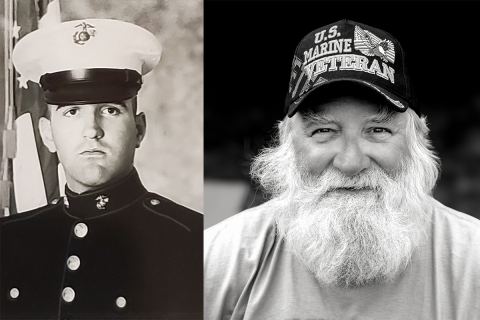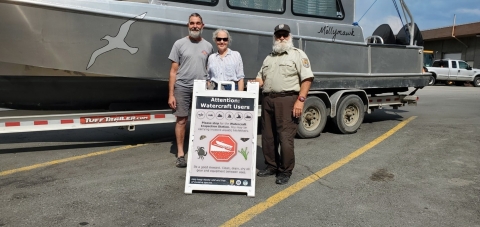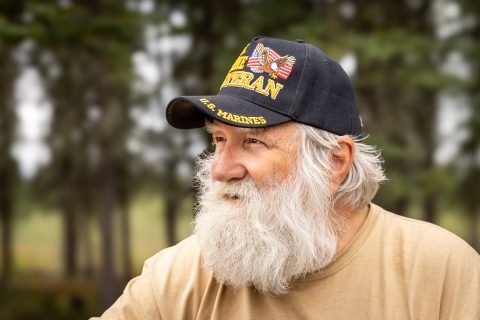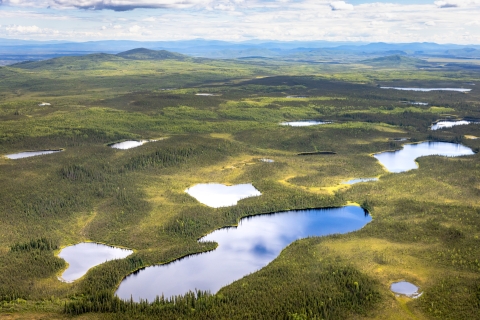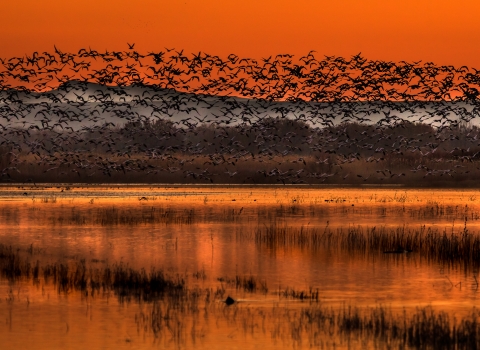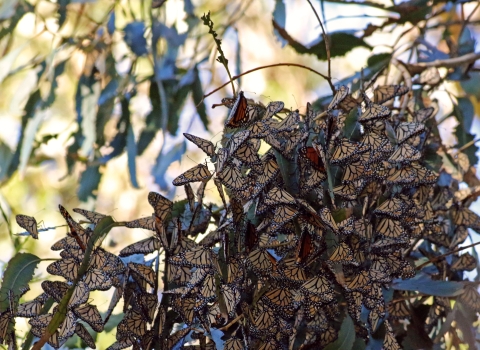As a young man with draft number 343, Steve Wogtech didn't have to join the military. But inspired by his father's Air Force service and a desire to pursue education through the GI Bill, he volunteered for the Marine Corps. What began as a career in Military Police on Okinawa has evolved into a lifelong commitment to public service, most recently as a watercraft inspector for the U.S. Fish and Wildlife Service at the Alaska-Canada Highway (Alcan) border crossing, adjacent to Tetlin National Wildlife Refuge. This strategic location helps protect both the refuge's critical wetlands and Alaska's wider waterways from harmful aquatic invasive species invasive species
An invasive species is any plant or animal that has spread or been introduced into a new area where they are, or could, cause harm to the environment, economy, or human, animal, or plant health. Their unwelcome presence can destroy ecosystems and cost millions of dollars.
Learn more about invasive species like zebra mussels that can damage ecosystems and infrastructure.
For Steve, each connection and conversation is an opportunity to protect Alaska's pristine waters. The skills he honed at military gates now serve him well inspecting boats at Alaska's primary land entry point. Rather than rely on enforcement alone, he combines thorough vigilance with an easy-going manner and focus on education.
"You've got the people that just don't understand and don't know," he explains about the hidden threats of invasive species that can survive in boat storage compartments and equipment. He carries samples of invasive mussels preserved in acrylic blocks. These tangible pieces of evidence show the threats he works to prevent. When boaters understand that these tiny invaders could damage their expensive equipment or change the waters they love to fish, most appreciate the careful inspection.
At the border station, Steve made it his mission to integrate invasive species prevention into daily operations. Often staying late into the night and keeping company with border officers on duty, Steve became a trusted presence at the remote and isolated crossing. His military background and dedication won respect from his fellow federal officers, and he remembers how they included him in their Fourth of July celebration - a gesture that meant a lot to the former Marine.
Time spent in conversation also serves him well with travelers. "If you open up a little communication with them, then they're like, 'Oh, that was cool,'" he remembers, noting how connecting with peoples' stories demonstrates his respect and care for their experience. "You ask permission... even though you may not need to or don't have to. I think that goes a long way."
Among the many vessels and visitors Steve has inspected, one encounter stands out – a group of sisters bringing their father's ashes to Alaska to scatter them at sea from on board the boat he once owned. "There are a lot of different reasons that people come up here... that was the most unique one... it was very meaningful," Steve recalls. This kind of moment, where his role intersects with deeply personal journeys, exemplifies why Steve approaches each inspection as more than just a procedure. It's about serving people while protecting the places they cherish, a continuation of the public service he began in the Marine Corps decades ago.
Thank you, Steve, for your service!
Steve Wogtech served as military police with the U.S. Marine Corps at a base in Okinawa, spent four decades as a mailman for the U.S. Postal Service, and began working as an invasive species watercraft inspector in Idaho before spending part of his summer at the border crossing in Alaska. He and his wife, Sue, also spend time bringing joy to children and adults as a professional Santa and Mrs. Claus. And yes, he brought his Santa suit to Alaska.


